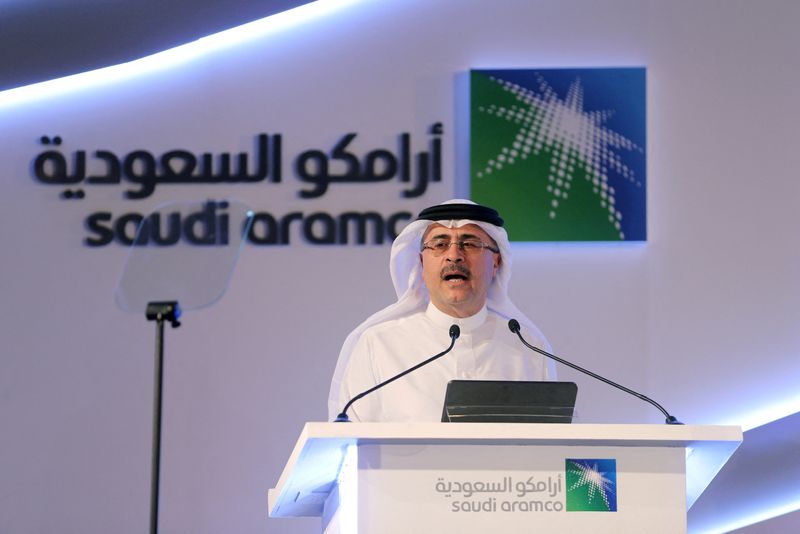DUBAI (Reuters) - Saudi Aramco (TADAWUL:2222)'s CEO Amin Nasser said on Monday that the company's supplies to customers remain adequate even with recent voluntary oil production cuts by the kingdom, adding that global demand remained resilient despite economic headwinds.
Saudi Arabia last week decided to extend a voluntary oil output cut of one million barrels per day for another month to include September, and said it could be extended beyond that or even deepened.
"We still have adequate supply to satisfy our customers," Nasser said on Monday.
Oil futures are now at their highest since mid-April after Saudi Arabia and Russia pledged to keep supplies down for another month to tighten global markets further. Brent was trading around $86 a barrel on Monday.
Aramco reported on Monday a near 38% drop in second-quarter net profit on the back of weaker oil prices and thinner refining and chemicals margins.
Despite the economic challenges, Aramco has seen positive signals that global demand remains resilient and that Chinese demand will continue to grow, Nasser told reporters on a media call.
"There is still a lot of mileage for China and the economy (to pick) up," he said, adding that the aviation sector was at 85% compared to pre-pandemic levels, indicating room for growth.
On the Durra shared offshore field with Kuwait, Nasser said plans were going ahead.
"Durra field is going as planned with the Kuwaitis, (with) no issue at this stage in terms of... the engineering and development," he said.

Saudi Arabia and Kuwait claim exclusive joint rights to the field. Iran also claims a stake, and says a Saudi-Kuwaiti agreement to develop it that was signed last year is illegal.
Both countries renewed calls for Iran to negotiate on the demarcation of the eastern border of the Gulf's maritime "Divided Area" last week. They say they want to negotiate with Iran together.